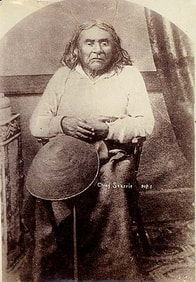
OUR HISTORY
The Duwamish people have been in the Seattle/Greater King County area since time immemorial. Our stories, such as "North Wind, South Wind", tell of the last Ice Age, and an Ice Weir breaking over the Duwamish River.
We were the first signatories on the Treaty of Point Elliott in 1855, signed by Chief Si'ahl, who was chief of the Duwamish and Suquamish tribes.
Our longhouse today stands across the street from where one of our largest villages was located before it was burned down by settlers in 1895.
The Duwamish people have been in the Seattle/Greater King County area since time immemorial. Our stories, such as "North Wind, South Wind", tell of the last Ice Age, and an Ice Weir breaking over the Duwamish River.
We were the first signatories on the Treaty of Point Elliott in 1855, signed by Chief Si'ahl, who was chief of the Duwamish and Suquamish tribes.
Our longhouse today stands across the street from where one of our largest villages was located before it was burned down by settlers in 1895.
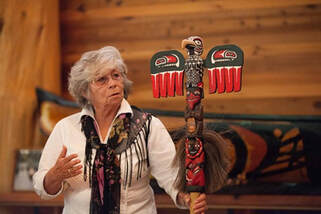
WHO WE ARE TODAY
We are the host tribe for Seattle, our area’s only indigenous tribe. Many of our enrolled members still live on Duwamish aboriginal territory, which includes Seattle, Burien, Tukwila, Renton, and Redmond.
Our tribe is governed by a 1925 constitution and its bylaws. The six-members* tribal council, headed by Cecile Hansen since 1975, meets monthly, and tribal gatherings are held at least annually. Tribal leadership has been very stable with fewer than six changes in leadership in the last 85 years.
Duwamish Tribal Services, is a 501[c]3 organization established in 1983 by the Duwamish Tribal Council to promote the social, cultural, and economic survival of the Duwamish Tribe. We brought suit against the government in 1925 and received a positive judgement for our claims in 1934, each of our members receiving payment from the government in 1964. We filed our first petition for recognition in 1978 and have been working for that acknowledgment ever since in the face of great odds.
We regularly provide Duwamish representatives and speakers for public engagements in the community, schools, universities, and heritage and service organizations. Consistent with native protocol, the Duwamish routinely greet visiting foreign and tribal leaders when they visit our area. Our tribal board members sit on the boards of key community and governmental organizations concerning environmental, heritage, tourism, and neighborhood issues.
Since the 1980s, DTS has administered the Emergency Food Assistance Program funded by the Washington State’s Office of Community, Trade, and Economic Development. The program provides on average 72 native people and their families with monthly food vouchers and other support services.
We are the host tribe for Seattle.
We are the host tribe for Seattle, our area’s only indigenous tribe. Many of our enrolled members still live on Duwamish aboriginal territory, which includes Seattle, Burien, Tukwila, Renton, and Redmond.
Our tribe is governed by a 1925 constitution and its bylaws. The six-members* tribal council, headed by Cecile Hansen since 1975, meets monthly, and tribal gatherings are held at least annually. Tribal leadership has been very stable with fewer than six changes in leadership in the last 85 years.
Duwamish Tribal Services, is a 501[c]3 organization established in 1983 by the Duwamish Tribal Council to promote the social, cultural, and economic survival of the Duwamish Tribe. We brought suit against the government in 1925 and received a positive judgement for our claims in 1934, each of our members receiving payment from the government in 1964. We filed our first petition for recognition in 1978 and have been working for that acknowledgment ever since in the face of great odds.
We regularly provide Duwamish representatives and speakers for public engagements in the community, schools, universities, and heritage and service organizations. Consistent with native protocol, the Duwamish routinely greet visiting foreign and tribal leaders when they visit our area. Our tribal board members sit on the boards of key community and governmental organizations concerning environmental, heritage, tourism, and neighborhood issues.
Since the 1980s, DTS has administered the Emergency Food Assistance Program funded by the Washington State’s Office of Community, Trade, and Economic Development. The program provides on average 72 native people and their families with monthly food vouchers and other support services.
We are the host tribe for Seattle.
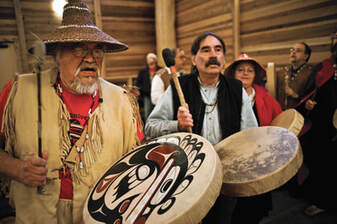
THE DUWAMISH TRIBE
In 1983, after more than 100 years of broken United States treaty promises, the Dxʷdəwʔabš established Duwamish Tribal Services as a non-profit 501[C]3 organization to provide social and cultural services to the Duwamish Tribal community.
In the absence of federal recognition, funding, and human services, Duwamish Tribal Services has struggled to provide numerous social, educational, health, and cultural programs during the past 35 years. The Duwamish Tribe currently has around 600 enrolled members*. Many more people have dxʷdəwʔabš ancestry but have chosen to enroll with federally recognized tribes, in order to obtain health and other human services.
For over 30 years, Cecile Hansen has been the elected chair of the Duwamish Tribe*. Cecile Hansen is the great great grandniece of Chief Si’ahl'. Cecile Hansen is also a founder and former president of Duwamish Tribal Services.
Seattle's First People, the dxʷdəwʔabš, welcome support from all sources, public and private. Contributions to Duwamish Tribal Services, a 501(c)(3) organization registered with the State of Washington and the IRS, are tax-deductible.
In 1983, after more than 100 years of broken United States treaty promises, the Dxʷdəwʔabš established Duwamish Tribal Services as a non-profit 501[C]3 organization to provide social and cultural services to the Duwamish Tribal community.
In the absence of federal recognition, funding, and human services, Duwamish Tribal Services has struggled to provide numerous social, educational, health, and cultural programs during the past 35 years. The Duwamish Tribe currently has around 600 enrolled members*. Many more people have dxʷdəwʔabš ancestry but have chosen to enroll with federally recognized tribes, in order to obtain health and other human services.
For over 30 years, Cecile Hansen has been the elected chair of the Duwamish Tribe*. Cecile Hansen is the great great grandniece of Chief Si’ahl'. Cecile Hansen is also a founder and former president of Duwamish Tribal Services.
Seattle's First People, the dxʷdəwʔabš, welcome support from all sources, public and private. Contributions to Duwamish Tribal Services, a 501(c)(3) organization registered with the State of Washington and the IRS, are tax-deductible.
| DUWAMISH TRIBAL SERVICES Honorable Cecile Hansen 4705 West Marginal Way SW, Seattle, 98106 (206) 431-1582 or [email protected] |
Duwamish Tribe - Our Original Beloved Community
. . . as I walked into the Main Ceremony Hall of Duwamish Longhouse, I was warmed with the golden Cedars, elevated by the lofty whole cedar logs – lifting my gaze and awareness upward. I felt the welcome and goodness in my heart – to return to a place and People whose purpose is to live life “in a good and right way.”
Surely THIS is the Original Beloved Community of Seattle.
Nominate you?
That would be a blind omission. We Proclaim You!
We ACKNOWLEDGE YOU! WE SUPPORT YOU!
WE CARE FOR YOU IN SACRED FRIENDSHIP.
WE LOVE YOU!
You ARE . . . The Original - and the enduring Community. We stand with you at this moment, who offered to share your land, your food, your ways.
May we continue to acknowledge and listen to you - learn from you – move forward in a “good and right way” - receiving your land, your cultural food, and your ways - with Gratitude and Reciprocity – WITH YOU!
THANK YOU . . . Community of the Duwamish People!
You are indeed Beloved!
Norma Jean Young,
Grandmother-Healer
- The direct descendants of Chief Sealth – the Duwamish People.
- Chief Sealth’s mother --- a Duwamish.
- The Duwamish River and the 54,000 acres spreading out from her that Chief Sealth offered to share with us – the place where Chief Seattle spent his days and life . . . .
- The Chief Seattle Oratory he gave - so much a part of the Spiritual Guidance of the People of Seattle and the People of this Earth . . . is in the soil under our feet . . . is in the molecules of air that derived from his living time and live now in the 12 Great Tides of the Air – and give us life.
Surely THIS is the Original Beloved Community of Seattle.
Nominate you?
That would be a blind omission. We Proclaim You!
We ACKNOWLEDGE YOU! WE SUPPORT YOU!
WE CARE FOR YOU IN SACRED FRIENDSHIP.
WE LOVE YOU!
You ARE . . . The Original - and the enduring Community. We stand with you at this moment, who offered to share your land, your food, your ways.
May we continue to acknowledge and listen to you - learn from you – move forward in a “good and right way” - receiving your land, your cultural food, and your ways - with Gratitude and Reciprocity – WITH YOU!
THANK YOU . . . Community of the Duwamish People!
You are indeed Beloved!
Norma Jean Young,
Grandmother-Healer
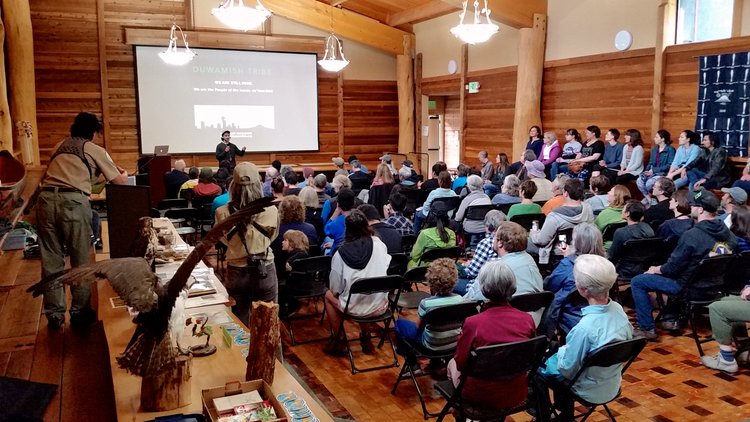
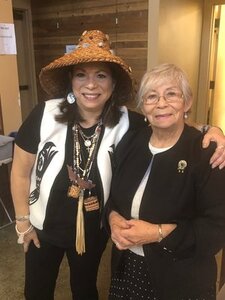
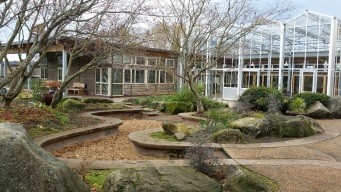
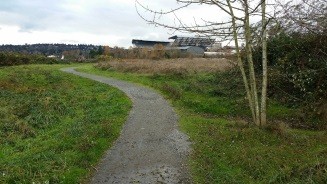
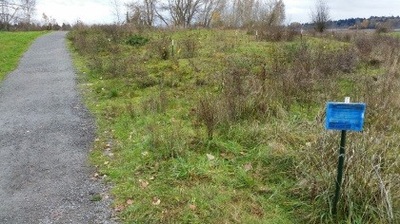
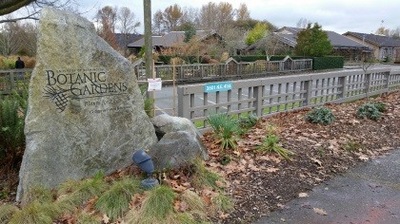
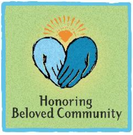
 RSS Feed
RSS Feed